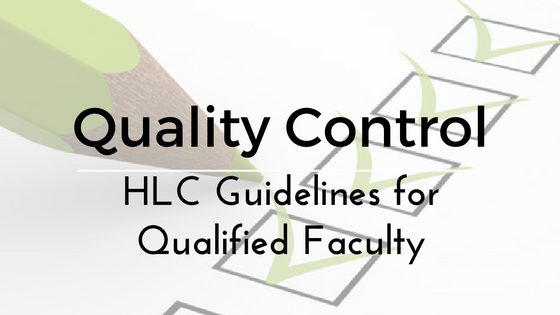
With the advent of adjunct faculty and larger numbers of students entering college, higher education institutions have become increasingly focused on ensuring the quality of their faculty. The Higher Learning Commission (HLC) has developed a set of guidelines for institutions and peer reviewers for determining qualified faculty.
The HLC defines qualified faculty as faculty members who possess an academic degree relevant to what they’re teaching and at least one level above the level they are teaching. In addition, qualified faculty must be able to understand and convey the essentials of the discipline that are age- and level-appropriate for students.
The HLC identifies two major ways of determining faculty qualification: first, determination by credentials, and second, determination by factors other than credentials. For determination by credentials, the necessary credentials will vary depending on the level being taught. In general, faculty should have completed a program of study in the subfield in which they plan to teach; in addition, faculty generally should have completed coursework in at least one level above the courses they will teach or develop.
The second method of determining faculty qualification is determination by factors other credentials. This method is often relevant for adjunct faculty, who may not possess a doctorate or have taught in academia before. Tested experience is often a factor beyond credentials that institutions use to determine faculty qualification.
Tested experience implies that the individual who may teach has sufficient knowledge and expertise to determine what students should learn and have learned. For example, a member of faculty teaching undergraduate courses in human resources or business ethics might not possess a master’s degree in business, but he or she could have relevant experience as a practicing attorney who works in labor relations, qualifying them to teach such a course.
As the HLC puts it, in some cases, such as in practice-oriented disciplines or programs, tested experience in the field may be needed as much as the formal educational preparation at the prescribed level in determining what students should know to practice. For many adjunct faculty, who may not possess relevant degrees, tested experience can qualify individuals to teach at the college level.

